Can you use Splice Sounds in your commercial projects? The simple answer to that question is YES, but the real answer is much more complicated… You see, most people don’t read EULAs (end-user license agreements) and that can get you in trouble. I’ve done my research and the reality is that using Splice Sounds in your commercial projects can lead to potential problems.
If you’ve read through Splice’s EULA, you’ll understand that you’re basically using the service at your own discretion. In other words, Splice cannot be held liable if for example, one of the samples/loops you used was later found to be uncleared (which is entirely possible). Splice also doesn’t protect you from any potential lawsuits that can arise because of improper use of their material (we’ll be studying some real examples to drive the point home). Lastly, you’ll need to realize that sounds you license from Splice are NON-EXCLUSIVE which means that using them for EXCLUSIVE tracks can get you in trouble. If I’ve still got your attention, keep reading to find out if it’s still possible to use Splice Sounds (or any other service) commercially and how to do it PROPERLY.
- Splice’s EULA has been improved
- What you find on Splice isn’t guaranteed to be legally cleared
- Justin Bieber getting sued for using Splice Sounds
- How to properly use Splice Sounds in your commercial projects
- Why would you risk your entire music career?
Disclaimer: I am not a lawyer or qualified to give you legal advice.
Splice’s EULA has been improved
It’s worth reminding ourselves that EULAs are always subject to change, but it’s important to note if you’ve come across this forum thread from Gearslutz. It’s actually what motivated me to write this article, but I also decided to dig deeper.
One of the things I realized was that some paragraphs referenced in that thread were missing.
If you’re wondering what they were…
“Sounds are licensed, not sold, to you. Subject to Section 6.b below, you are granted a non-exclusive, non-transferable, perpetual right to use Sounds you obtain through Splice Sounds in combination with other sounds in music productions to create derivative works. This means that, subject to Section 6.b, you may modify, reproduce, publicly perform, distribute, transmit, communicate to the public and otherwise use Sounds, including for commercial purposes.“
“You may not (i) use the Sounds in isolation as sound effects or as loops, (ii) use Sounds in a manner competitive to Company or its licensors, or (iii), sell, loan, share, lend, broadcast, rent, lease, assign, distribute, or transfer all of the Sounds to a third party except as incorporated into a derivative music production. Additionally, for clarity, you may not use the name, image, or likeness of the artist associated with a Sound in any way without that artist’s express written permission.“
“You are free to register a copyright in a derivative work you create using a Sound (“Your Work”). However, you do not own the copyright in the Sound, and if you submit a takedown notice to any third party sites for Your Work, then you are responsible for ensuring that such takedown notice is not being issued for a different work on the basis that the different work includes the same Sound. Submitting a takedown notice in violation of The Digital Millennium Copyright Act of 1998 (the “DMCA”) may subject you to liability for damages under Section 512(f) of the U.S. Copyright Act.“
That all sounds complicated, I know.
In layman’s terms, they were vaguely stating that anything you created using Splice samples/loops was basically considered a “derivative work” of those sounds.
That’s probably what caused the commotion, but Splice seems to have addressed that.
You can consult the current EULA yourself and search for the use of the word “derivative” (use ctrl-f/cmd-f). It’s only used twice and not in the same context.
In other words, that issue doesn’t seem to be an issue anymore.
You can double-check yourself, but just be aware that these terms are most likely going to be updated again (and again). If you’re planning to use your music for streaming and/or non-exclusive licensing, then it’s okay…
However, signing your music for exclusive deals can potentially create conflicts.
That’s why YouTube (and other platforms) don’t allow you to monetize music that use samples/loops. Exclusive music libraries have the same concerns and the same precautions.
Do you want to be considered a liability?
It’s up to you, but we’re not done yet. Let’s move on to our next point!
What you find on Splice isn’t guaranteed to be legally cleared
Although Splice has become one of the most reputable sources of royalty-free samples/loops, it doesn’t mean that it’s impervious to fraud. In other words, it’s not impossible for one of Splice’s contributors to upload material that can later be found to be uncleared.
By uncleared, I mean sounds that they don’t own the copyrights to (at least not entirely).
Here’s the paragraph that cautions the end-user (you) about this possibility…
“We do not represent or guarantee the truthfulness, accuracy, or reliability of User Content. You accept that any reliance on material posted by other Users or third-party service providers will be at your own risk. By using the Service you accept the risk that you might be exposed to content that is objectionable or otherwise inappropriate.“
As mentioned, it’s much less likely to happen on sites like splice.com, but if they’re warning you about it, it’s probably because it’s happened in the past…
Once again, you’re the one that’ll be taking the risk. Is it really worth it?
Keep reading to find out how to mitigate that risk but first, let’s look at some examples.
Justin Bieber getting sued for using Splice Sounds
If you haven’t heard the story, Justin Bieber was actually accused of infringing on Asher Monroe’s copyright. The songs in question were “Running Over” and “Synergy”, respectively.
In all fairness, the loop used wasn’t used properly AT ALL.
Before getting into that though, let’s see how Splice protects itself from these disputes…
“We are not responsible for any disputes or disagreements between you and any third party you interact with using the Service, including Users. You assume all risk associated with dealing with third parties. You agree to resolve disputes directly with the other party. You release us of all claims, demands, and damages in disputes among Users of the Service and will not involve us in such disputes. Use caution and common sense when using the Service and dealing with other Users.“
It’s completely in their right to do so, but it’s in YOUR best interest to think ahead.
If you listen to these tracks, you’ll notice that the loop makes up most of the instrumental. Whoever produced it must’ve gotten pretty lazy, am I right?
However, using any form of memorable melodic/harmonic hook could put you at risk.
It’s kind of like someone who sells you guns or fireworks… It’s completely legal, but it doesn’t mean that you can’t seriously injure yourself (or others) with them.
Once again, you’ll need to use your best judgement to determine how “original” your music will sound after implementing one or more of these samples/loops.
Do you seriously think an exclusive music library is looking for that kind of trouble?
The reason they sign exclusive deals is to get ORIGINAL music, not rip offs…
Anyway, if these arguments haven’t convinced you, I don’t know what will. However, we’re still going to be learning how to use samples/loops PROPERLY in the next section.
How to properly use Splice Sounds in your commercial projects
I actually know of many TV/Film music producers who use Splice Sounds in their commercial productions. Most of these artists sign exclusive deals as well, so how do they do it?
ONE-SHOTS.
If you’re not familiar with the term, one-shots are samples that AREN’T loops. If you’re just looking for a kick drum or snare sound, that’s completely fine.
Splice has many sounds that can be used to create your own instruments and parts.
I also think using certain percussion loops is fine, as long as it’s in the background (i.e.: don’t use the loop as your “beat”). I’m talking about simple tambourine/shaker or even hi-hat parts that can be layered on your existing drum pattern.
Just use your common sense… Anything that ISN’T particularly distinct.
If you were going to play your music to Shazam, would it recognize that loop?
If the answer is NO, then YouTube and other platforms that can detect this kind of stuff shouldn’t be able to tell whether you’re using loops or not. THAT’S the secret.
In retrospect, I advise against using chord progression loops and especially melodic loops.
Melodies CAN be copyrighted, so how would that work if you didn’t come up with it yourself?
Once again, the key to using Splice Sounds (and any other similar service) is to use your common sense when selecting sounds. It doesn’t mean that EVERYTHING on there was meant to be used commercially.
At the end of the day, they’re there to make money.
The only suggestion I can make if you’re planning to use entire melodic/harmonic loops would be to splice them (no pun intended) and trigger each segment using a sampler.
That way, you’re actually re-ordering the loop into something new and original.
Why would you risk your entire music career?
Just to be clear, I’m not demonizing Splice Sounds. I actually think they’re second-best after LANDR Samples, but that doesn’t justify using these services for commercial-purposes.
I mean, you read that entire EULA right?
Do you seriously want to add that kind of burden on your shoulders?
The music industry is risky enough as it is, so there’s really no reason to add more fuel to the fire. However, you can still get away with using some of the samples/loops if you follow my instructions from the previous section.
ONE-SHOTS are your safest bet though.
I’m also mostly concerned about those of you who want to make exclusive deals with your music. Non-exclusive tracks that end up on TV/Film can also put you at risk.
That’s why ORIGINALITY is the best way to mitigate legal disputes.
Even if you “accidentally” plagiarize someone else’s music, you can at least prove that you didn’t have access to the recording.
That’ll be ONE of your defenses, but if you’re curious to find out more about this, you can continue your journey into copyright law by reading this article.
As always, I hope you’ve found everything you were looking for and if you have any questions, don’t be shy. Now go make some music, but be responsible!
Sources
https://support.splice.com/hc/en-us/articles/360025013734-Splice-Sounds-Licensing-FAQ
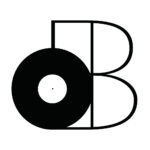
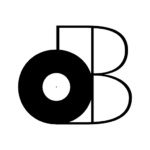



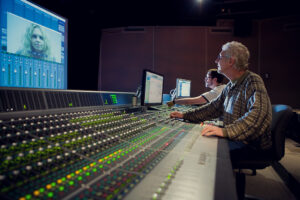
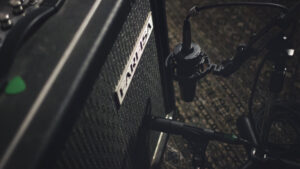
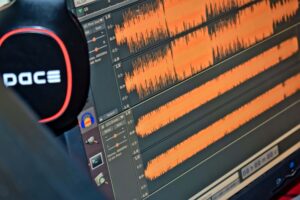

4 thoughts on “Can You Use Splice Sounds in your Commercial Projects?”
Hey Stefan- this is a great article! thanks. Too many music makers/ artists aren’t aware of the detail of copyright and when they see “Royalty Free music” assume it means for commercial use. Is it fair to say that in practice it only really matters by the time it is a well known hit or artist ? For the rest of us there is some leeway but I agree why take the risk. IMHO there are lazy but fun ways to use loops and creative ways – which sometimes take more time and interrupt workflow but the reward of listening to a track which is entirely your own is just different.
Hey Lou,
To answer your question, it just really depends what you want to do with your music. If your goal is to have it synced to picture, then you’ll inevitably run into difficulties if your music is mostly composed of loops. Either way, you probably wouldn’t get very far since music supervisors are looking for ORIGINAL music.
For most producers though (i.e. bedroom producers), you can use as many loops and samples as you want.
If the aim isn’t to put your music to work, then you have nothing to worry about.
I agree that producing a 100% original track is a great feeling.
Would you mind sharing some of your tips for using loops in creative ways? I’m sure a lot of readers would be very interested to find out more.
Thanks for your comment, all the best!
– Stefan
Very good article. How do you feel about using drum loops from Splice for exclusive works? I’m a keyboard player and often collaborate with drum programmers to make exclusive content. In an attempt to be more self sufficient I’m thinking about using pre-made drum loops to save me time, not having to collaborate and split the $ while being more authentic on the drums than I can do myself. Does Youtube really prevent you from monetizing if you use a drum loop? Seems like if that’s true it would completely eliminate the ability to use any drum loops or recognizeable sounds from Splice at all. Youtube is where all artists want their music to be.
Hey Adam,
Drum/Percussion loops would most likely pass if you had enough tracks layered on top. Those are the only types of loops I’ve used in exclusive works.
Ideally, you should try to find MIDI loops so you can make slight variations to the performance and use your own drum samples (from drum sample libraries like Steven Slate Drums).
That being said, the only thing I’d be concerned about is your music sounding “loopy”. That’s why I prefer MIDI loops.
Don’t worry about it too much though! Give it a shot and let me know how it goes.
Thanks, take care!
– Stefan